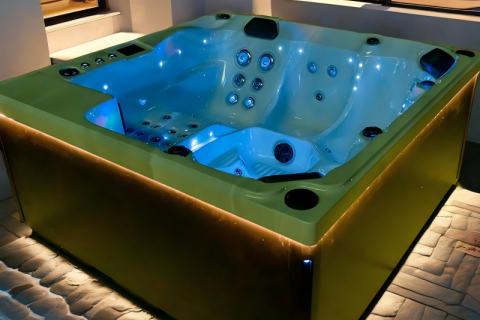
- Home
- >
News
Spa hot tub drainage will not necessarily kill lawns, but under certain conditions, it can indeed cause damage. The key factors are: • Chemical components in the drainage • Drainage temperature • Drainage method and frequency • The lawn's own tolerance
To efficiently locate small leaks, the key is to follow a systematic troubleshooting sequence, rather than random checks. A professional and effective troubleshooting logic typically includes: 1. Confirming if the water level drop is abnormal. 2. Observing the stable water level height. 3. Inspecting the external structure at the corresponding height. 4. Inspecting pipes and connections by area. 5. Comparing changes between operating and stationary states.
When filling a spa hot tub with water in winter, please note the following: • Use tap water that is as cold as possible but not frozen. • Keep the filling process continuous and avoid interruptions. • The water level must reach the specified height before turning on the power. • Avoid starting any system before the water filling is complete.
Nozzles are one of the most common sources of leaks in hot tubs. The rubber gaskets or seals behind the nozzles gradually age due to age, temperature changes, and exposure to chemicals.
CYA, short for Cyanuric Acid, is a white crystalline organic compound, often referred to as a "chlorine stabilizer" or "chlorine protectant." Its main function is to stabilize chlorine in outdoor spa hot tub water, preventing it from being decomposed by ultraviolet rays in sunlight, thus extending the effective time of chlorine.
If an outdoor spa hot tub is exposed to sunlight for extended periods, if disinfectant is insufficient, or if the filtration system is not functioning properly, algae will grow and multiply rapidly, causing the water to appear noticeably green or cloudy. This is one of the most common causes of "green water."
Theoretically, it is safe to use an Outdoor Spa Hot Tub in light rain or drizzle, provided that your hot tub's design, installation, and electrical system meet outdoor protection standards.
Modern outdoor spa hot tub designs are highly diverse, ranging from single and double to four and six-person sizes. • Small outdoor spa hot tubs typically measure between 1.6m x 1.6m and 2m x 2m. • This means that even a small patio, approximately 8 square meters in size, can accommodate a compact outdoor spa hot tub with proper layout.
Many users experience skin irritation, itching, redness, and swelling when water quality is unbalanced (especially when the pH is too acidic or when there is excess residual chlorine). Baking soda, as a weakly alkaline substance, has excellent anti-irritant properties. Its mild neutralizing properties can alleviate skin problems caused by disinfectant residue or acidic imbalances in water.
The frame design of an outdoor spa hot tub is based on "bottom-load bearing." The bottom ground plane typically utilizes reinforced steel frames and support legs, capable of bearing the weight of the unit and the weight of people in use. The side structures serve only to maintain the integrity of the tub and are far less resistant to compression than the bottom.
A tub can fit through a doorway smoothly if one of the following conditions is met: · Doorway width ≥ the tub's dimensions on either side + cushioning ≥ 100 cm; · Height ≥ the tub's longest side (usually width or length); · The path is straight and unobstructed, with a turning radius that allows the unit to pass through at an angle; · Doorframes and guardrails can be removed to expand the space; · An alternative to hoisting is available.
Yes, lowering the temperature of an outdoor spa hot tub can save money. These savings are reflected not only in your electricity bill but also in equipment longevity, water quality maintenance, and energy efficiency.












